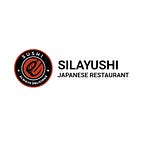Quezon City: A Vibrant Tapestry of History, Culture, and Progress
Sign up to view our menu at https://silayushi.com/yes. Or try our instant ramen noodle and get delivery anywhere in the Philippines. Order here for only ₱40: https://shop.silayushi.com/instant-noodles-original
Quezon City, located in the heart of Metro Manila, Philippines, stands as a dynamic testament to the country’s rich history and its continuous march towards modernity. As the most populous city in the Philippines, it boasts a diverse tapestry of culture, vibrant communities, and a unique blend of urban development and natural beauty. With a history that dates back to the early 20th century and a constant evolution that reflects the spirit of the nation, Quezon City holds a special place in the hearts of Filipinos.
Historical Roots
Quezon City was officially founded on October 12, 1939, under the leadership of President Manuel L. Quezon, after whom the city was named. The decision to move the capital from Manila to the present site was part of a broader plan to establish a new and more spacious capital for the Philippines. The city was envisioned as a symbol of progress and a testament to the resilience and determination of the Filipino people.
The early years of Quezon City saw the construction of key infrastructure, including government buildings, residential areas, and commercial spaces. The Quezon Memorial Circle, a national park and shrine, was established to honor the legacy of President Quezon. Its iconic monument, a towering art deco structure, stands as a visual representation of the city’s historical significance.
Cultural Diversity
Quezon City is a melting pot of cultures, reflecting the diverse tapestry of the Philippines. Its neighborhoods are home to people from various regions, each contributing to the city’s unique flavor. Areas like Diliman, Loyola Heights, and Katipunan are known for their academic institutions, making the city a hub for education.
The University of the Philippines Diliman, one of the country’s premier educational institutions, plays a pivotal role in shaping the cultural and intellectual landscape of Quezon City. The campus serves as a venue for artistic expression, with theaters, galleries, and cultural events that contribute to the city’s vibrant atmosphere.
The city also hosts numerous festivals that celebrate its cultural diversity. From the lively Panagbenga Festival to the colorful Aliwan Fiesta, Quezon City is a hub for festivities that showcase the country’s rich heritage. These events not only entertain but also serve as a reminder of the unity that stems from embracing diversity.
Urban Development
Quezon City has experienced rapid urbanization over the decades, evolving into a bustling metropolis while maintaining its commitment to green spaces and sustainable development. Cubao, one of the city’s major commercial districts, is a testament to its modernization. With towering skyscrapers, shopping malls, and entertainment complexes, Cubao represents the city’s economic and commercial hub.
The city’s commitment to green initiatives is evident in the Quezon City Memorial Circle, a sprawling park that provides a breath of fresh air amid the urban landscape. This green lung offers recreational spaces, jogging paths, and a sanctuary for biodiversity, creating a balance between progress and environmental preservation.
Culinary Haven
Quezon City is a culinary haven, boasting a diverse range of dining options that cater to various tastes and preferences. Maginhawa Street, often dubbed as the city’s food street, is lined with restaurants, cafes, and food stalls offering a wide array of local and international cuisines. From traditional Filipino dishes to trendy and innovative culinary creations, Quezon City is a destination for food enthusiasts.
The city’s food scene not only satisfies the taste buds but also reflects the fusion of traditional and modern influences. Food parks and night markets add to the gastronomic adventure, providing a platform for both established chefs and aspiring food entrepreneurs to showcase their talents.
Challenges and Opportunities
While Quezon City has experienced tremendous growth and development, it also faces challenges that come with urbanization. Traffic congestion, waste management, and infrastructure development are areas that require continuous attention and innovative solutions. The city government, along with civic organizations and the private sector, plays a crucial role in addressing these challenges and steering Quezon City towards a sustainable and resilient future.
Quezon City also holds significant potential for further growth and progress. As a center for education, culture, and commerce, the city can continue to attract investments and talent, contributing to the overall development of the Philippines. Strategic urban planning, sustainable practices, and community engagement will be essential in harnessing the opportunities that lie ahead.
Conclusion
Quezon City, with its rich history, cultural diversity, and commitment to progress, stands as a microcosm of the Philippines itself. From its humble beginnings as a planned capital city to its current status as a thriving metropolis, Quezon City reflects the resilience and adaptability of the Filipino spirit. The city’s ability to balance tradition and modernity, embrace diversity, and address challenges head-on positions it as a symbol of the nation’s aspirations for a bright and sustainable future. As Quezon City continues to evolve, it will undoubtedly play a vital role in shaping the narrative of the Philippines in the years to come.
Sign up to view our menu at https://silayushi.com/yes. Or try our instant ramen noodle and get delivery anywhere in the Philippines. Order here for only ₱40: https://shop.silayushi.com/instant-noodles-original
